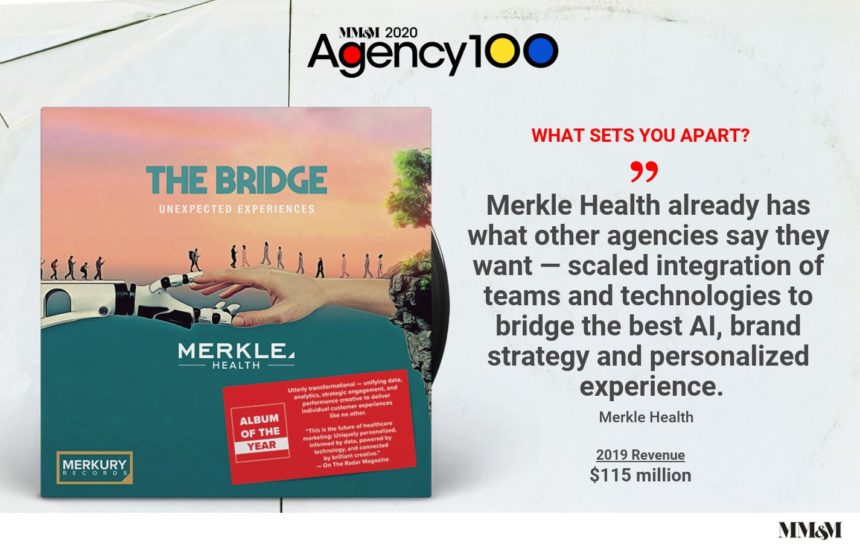Merkle Health extended its data-first legacy early this year with Merkury, an offering from parent company Merkle, designed to ease clients’ transition to a cookie-free internet. It was built in response to new privacy regulations, such as Europe’s General Data Protection Regulation and the California Consumer Privacy Act, that essentially forced healthcare marketers to reassess their practices.
Merkle Health SVP, general manager Jane Portman acknowledges the impact of the new regulations and the phasing out of cookies, even as the industry as a whole has been slow to do the same.
“Those factors are playing into how we service our clients, how we respond and how we help them market,” she says. “Our solution puts us in a place where we’re able to bring value back to clients. Data is playing a more integral role and it’ll be more important to really assess the levers we should pull as marketers and how to do it in a smart way.”
It’s the ability to take advantage of Merkury and similarly data-forward offerings from Merkle and parent network Dentsu Aegis that gives Merkle Health an edge, according to SVP and client partner David Magrini, who was Portman’s predecessor as the group’s general manager. He notes that much of 2019 was spent “transitioning those capabilities to evolve and bring the Merkle Health lens to them.”
Indeed, Magrini and Portman agree that Merkle Health did a lot of work on itself in 2019. The agency conducted a brand-refresh exercise that included what Portman characterizes as “a concerted internal effort” to produce more thought leadership.

“As of last year, and more than ever before, we are going to market as Merkle Health — and now we have branding around it,” she adds. “It makes us unique within the overall Merkle business.”
Other areas of focus during 2019 were the agency’s media, performance marketing, CRM and data analytics offerings. To that end, Merkle Health added a handful of clients that tapped one or more of those capabilities, among them Pfizer, Seattle Genetics, Oregon Health and Harvard Pilgrim. They join a roster headlined by AbbVie, Sanofi, EmblemHealth and Cancer Treatment Centers of America.
The firm generated $115 million in 2019 revenue, a 5% increase over 2018’s total of $110 million. Head count shot upward to 490, up from 400 at the end of 2018.
Merkle Health also saw change on the leadership front, with Portman taking the reins from Magrini after serving as VP of health analytics for nearly nine years. Her elevation came only a few months before the industry’s move into uncharted territory amid the COVID-19 pandemic.
“Our biggest focus right now is to be there for our clients and help them navigate in this new environment,” she says. “It’s certainly possible that there might be a business fluctuation this year that we haven’t planned for, but once this has passed, omnichannel activation will play an even bigger role than it did before. That’s where we can really lean in and help.”
The best marketing we saw in 2019…
Aimovig’s I Am Here and See the Impact campaigns, Plan B’s One Step and 29 Rooms immersive experience and Latruvo’s Get Up Alarm Clock. But perhaps the most impactful was the National Organization of Victim Association’s Rape Tax campaign. The creative concept reflects the raw nature of the topic and shows the viewer actual materials that evoke many emotions. — Jane Portman
From the June 01, 2020 Issue of MM+M - Medical Marketing and Media







